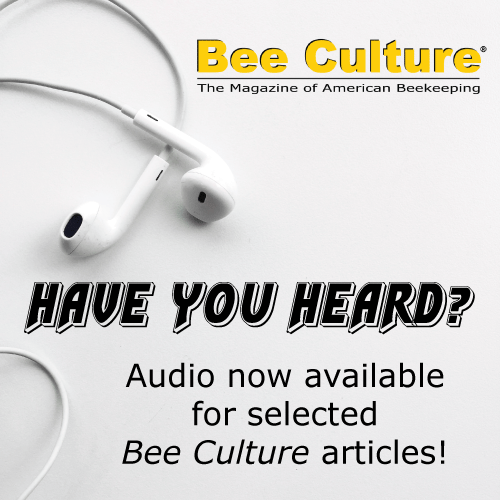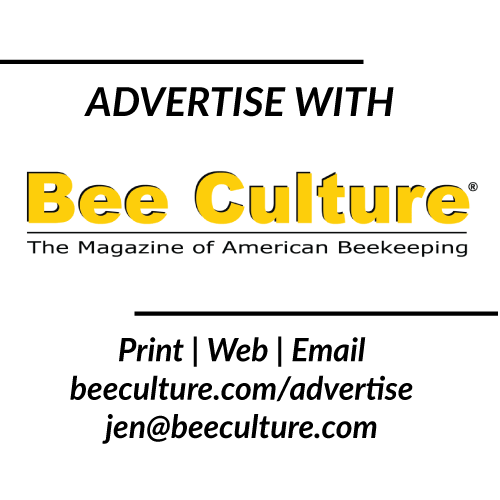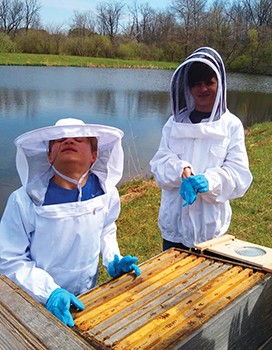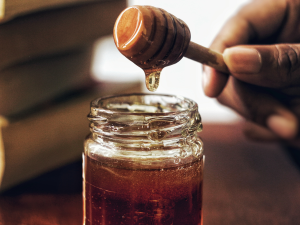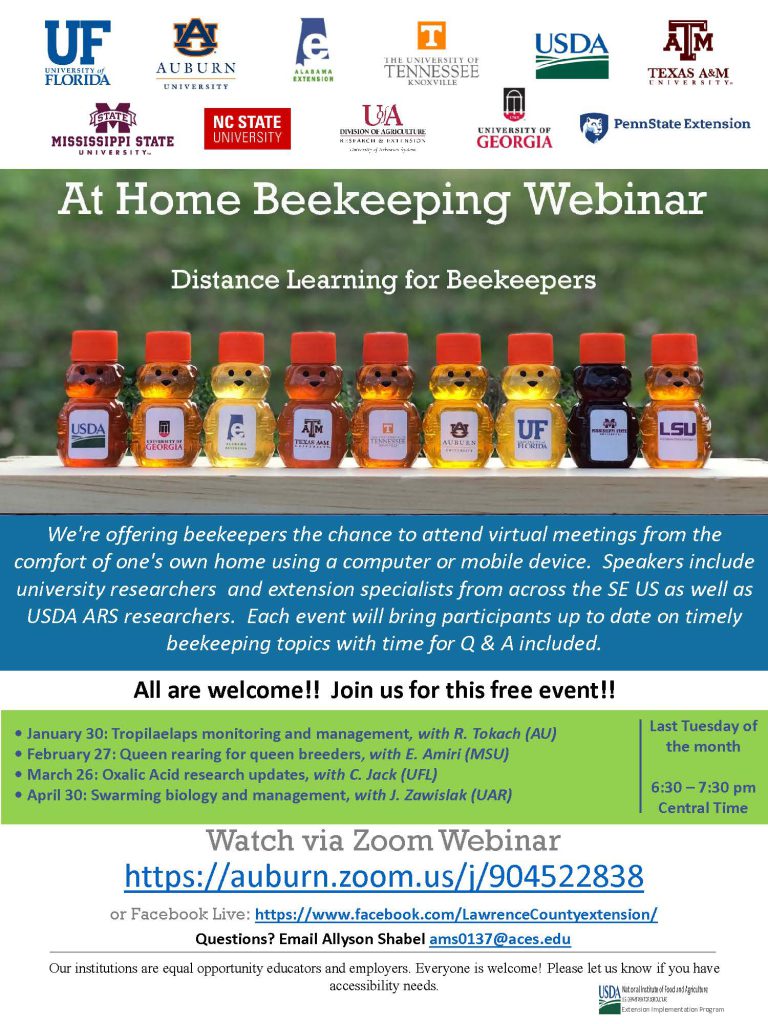The Buzz on Urban Bees
By: Carey Smith
Urban beekeeping is a growing trend. It may seem odd to many to keep bees in an urban area, but bees in cities are actually more likely than rural bees to survive the winter as well as Colony Collapse Disorder (the main culprit of bee decline). This is due to the more varied diet and better immune systems of city bees. Within Springfield city limits, urban beekeepers are limited to five hives. No broad expanse of countryside is needed, as flowering trees, bushes and plants in urban yards provide a diverse selection of nectar and pollen for bees to forage.
Brothers Seve and Gage recently got their own hives to care for and harvest. – Photo by: Jennifer Aholt
Surprisingly, it is not uncommon for children to keep beehives. Seve Gedaminski, age 8, and his brother Gage, 10, both of Springfield, began their beekeeping endeavors with a family friend, who has been a beekeeper for 10 years. Although Seve has been stung a few times through his beekeeping suit, his brother Gage says it’s not a common occurrence. “They’re not dangerous unless you’re messing with them. They warn you if you are bothering them.” The brothers each have a hive of their own, located in Petersburg.
Lincoln Land Beekeepers Association (LLBKA) president Jeremy Margaron’s interest in bees started as a home school science project with his children, beginning with a couple of hives. His family now tends about 100 hives in rural Mechanicsburg, selling honey and supplies, with a physical store put on hiatus due to the pandemic. Margaron says, “I figured the best way to teach my children how to run a business was to run a business.”
A 15-foot x 15-foot space with a water source is required, as well as a hive setup, including frames, and a package of bees with a queen. Beekeeping clothing and tools are recommended for a beginner. Margaron advises a budding urban beekeeper to first join a local beekeeping club and to get a mentor. “That’s the best way to success,” he states.
Though it’s a little late to get started this year on keeping bees, it’s still possible. Classes are often available through the University of Illinois Extension Office, and LLBKA hopes to have online classes available soon.
There are many benefits of urban beekeeping, one of which is that urban bees pollinate the bulk of home gardens.
One of every three bites of food we eat is pollinated by bees. Without bees, much of our regular and familiar foods would disappear. Beekeeping can also be a great stress reducer. Margaron says that when he is tending his bees, his focus is so great that all concerns of the day melt away.
If you are like many people, wishing to support bees and beekeepers but not able or willing to tend bees personally, there are many ways to help. One is to eliminate the use of pesticides in the urban lawn. Though many are aghast at the sight of dandelions, they are a wonderful early source of nectar and pollen for bees. Anything in a yard that flowers will feed bees, and having an abundant source of nectar and pollen for bees exiting winter and entering spring is of great benefit to them. It is also helpful to plant flowers that bloom throughout the season, especially early and late. Even weeds like asters can provide an abundance of nectar and pollen for bees and other pollinators as they head into winter.
Another way to support local beekeepers is to buy their honey. China is one of the biggest honey producers in the world. But like olive oil, even if the label states it is 100% pure, it often is not. Honey from China tends to be ultra-filtered, is often adulterated with rice syrup or corn syrup, and even worse, can contain harmful antibiotics. Yes, “honey laundering” is real, and can be avoided. Buying local is always a good practice in ensuring the quality of the products you buy, especially when you know your beekeeper well.
While keeping bees is not a quick return on investment, it does provide sweet rewards for those who are patient.
Brothers Seve and Gage say their favorite reward is bread and honey sandwiches.
Carey Smith is a gardener who is currently replacing her front lawn with flowering plants in support of bees.
https://www.illinoistimes.com/springfield/the-buzz-on-urban-bees/Content?oid=12108619
________________________________________________________________________________


